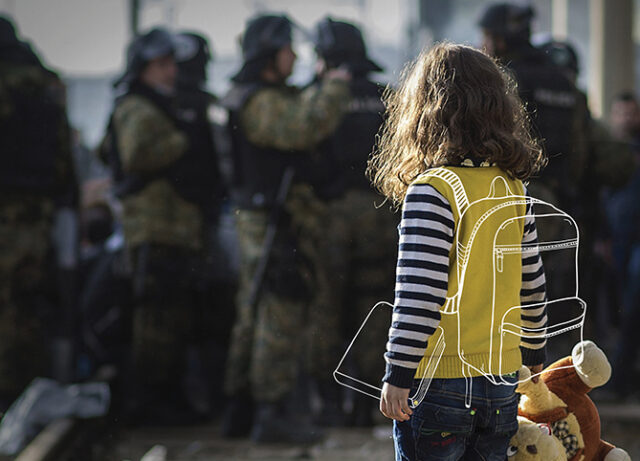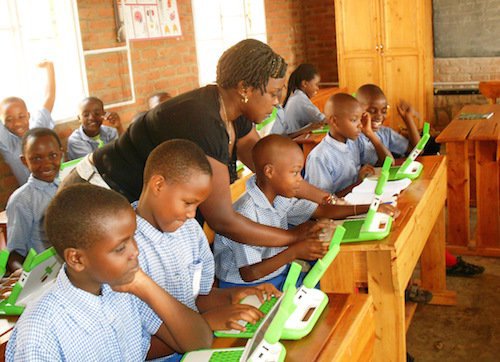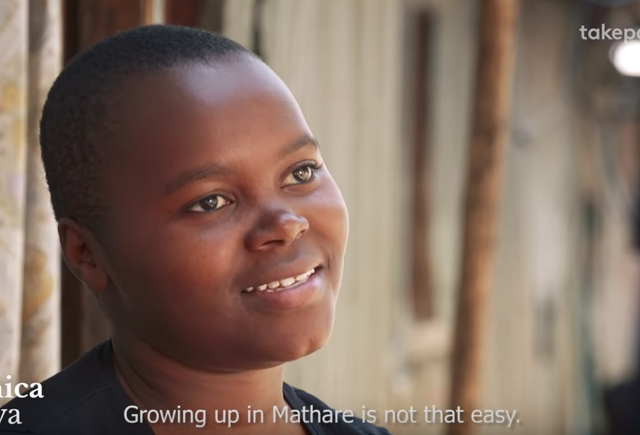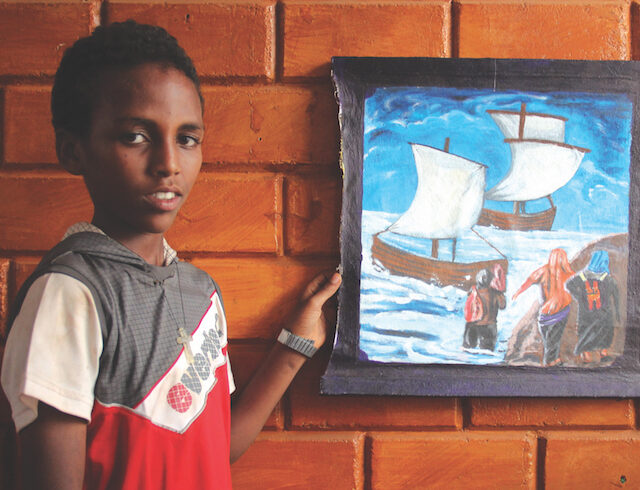Last year, over 34,000 people were forced to leave their homes every day due to violence, persecution, and conflict. Unprecedented levels of forced displacement have caused a global migration and refugee crisis, but world leaders have failed to come up with any long-term solutions. There are an estimated 21.3 million refugees around the world, and many find themselves in limbo for years, denied the rights they need to become self-sufficient and restart their lives. Refugees need practical and fast paths to integrate into new societies. This begins with quality education.
Education is not only a fundamental right; it is one of the most valuable assets a refugee can have. Refugee children and adolescents who are integrated into national school systems build lasting friendships with local children, learn languages, and develop vital skills they need to sustain themselves and their families. For refugee children, school can be a safe place where they can learn and play—basic necessities for any child growing up, but especially important for those that have been torn from their homes and seen the horrors of war.
But despite the crucial role that education plays for refugee communities, it is ignored by aid donors and governments. Only 2% of funding in emergencies is dedicated to education. As a result, there are approximately 3.7 million refugee children out of school. The impact of this is devastating, with children easily falling victim to exploitation or forced to work to earn money for their households. Some families resort to child marriages in order to survive, causing as many as 90% of girls to drop out in some areas.
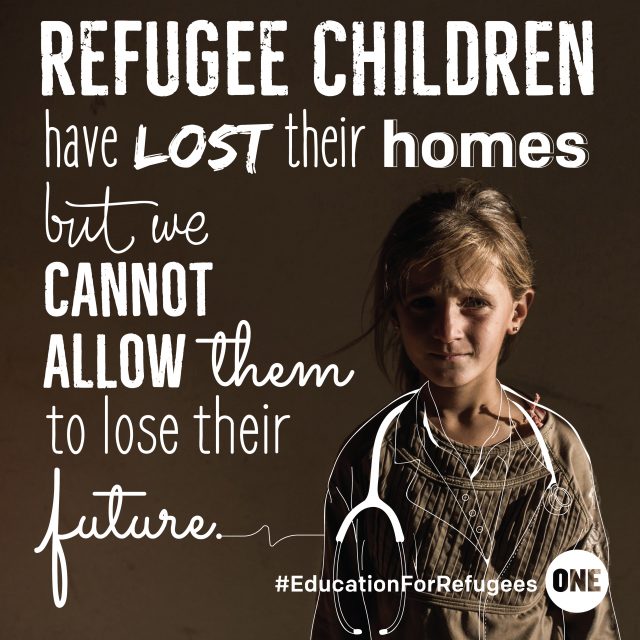
Unfortunately, 86% of refugees are hosted by developing countries that are already facing tight budgets, and the scale of the crisis has strained their limited resources. Refugee children often face legal barriers to enrollment, and schools are not properly equipped to handle the large influx of students. To get these refugee children access to education, these countries need more teachers, more schools, and more capacity to deal with the cultural, mental and physical health needs of these children.
Children fleeing conflict are the most susceptible to violence and abuse, and education is often a lifesaving intervention that offers protection and preserves their futures. Education is a basic human right, and without the chance to study, we risk losing an entire generation of children when the solution is in our hands.
At this September’s two refugee summits, world leaders must deliver a credible plan to provide all refugee children with quality education, with at least one million reached by the end of this school year.
